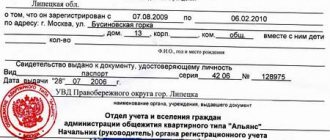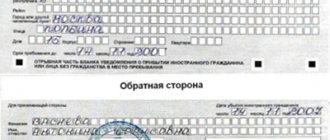Often, conflict situations with a subordinate take a variety of forms. For example, a boss talks with an employee, asks him to give his best and work more productively. Despite this, it gets the exact opposite effect.
The employee stops communicating with colleagues, does his work poorly and does not respond to management’s comments, or even goes on sick leave for an indefinite period of time. As you know, it is the certificate of incapacity that completely ties the hands of the authorities.
The person is on the payroll, sick leave is paid, but the work stops because the subject does not appear at the enterprise or company office. Can you be fired for frequent sick leave?
Can a person who often goes on sick leave be fired?
When a subordinate is on paid sick leave for a long time, the employer does not know what is best to do.
Usually, all attempts to appeal to conscience, make a reprimand, or dismiss are nipped in the bud due to the elementary absence of a citizen from his workplace. In such a situation, the Labor Code categorically prohibits the application of any sanctions in relation to a specific subject.
Citizens who have temporarily lost their ability to work can exercise their right to sick leave. This document confirms the legal reason for absence from work. However, it is often very difficult to find out whether a subordinate was really sick or whether the certificate of incapacity for work is a simple cover for personal matters.
Employers are especially often concerned about cases when an employee goes on sick leave quite often or his illness is prolonged. You should not torment yourself with suspicions and doubts, but simply study the regulatory framework of the issue and know effective ways that will help verify the authenticity of a sick leave certificate issued by a medical institution.
The Labor Code of the Russian Federation provides for the possibility of terminating an employment contract in the event of absence from work for more than four months in a row due to temporary incapacity for work (this does not include maternity leave), unless current legislation establishes a longer period for maintaining a job in case of a certain illness.
So can you fire someone for taking frequent sick leave to care for a child?
If an employee is absent from his workplace due to caring for a sick family member, then management does not have the right to dismiss such a subordinate. Among other things, there are certain guarantees for representatives of the fairer sex raising minor children.
If the contract with the company ends before the employee's youngest child reaches the age of five, management must enter into a new contract for at least twelve months.
Who can check the validity of issuing a sick leave?
To verify the authenticity of the certificate of incapacity for work, you can contact the territorial body of the Social Insurance Fund or the regional office at the location of the medical organization, the details of which are indicated in the certificate of incapacity for work. Verifying the validity of issuing certificates of incapacity for work falls within the competence of Roszdravnadzor.
When can a dad take sick leave to care for a child? More details
If an employer has reasonable doubts regarding sick leave, he can contact:
- To the authorities of the Social Insurance Fund of Russia with a request for verification. If the FSS of the Russian Federation finds the employer’s arguments worthy of attention, an inspection will be carried out in relation to the healthcare institution.
- To the police and prosecutor's offices. They will check the issuance of a dubious certificate of incapacity for work to detect signs of a crime.
During the inspection, the grounds for issuing sick leave will be examined. Currently, in state clinics, visits to doctors take place through the EMISS system (unified interdepartmental information and statistical system). Therefore, all information will be recorded: when the person made an appointment with the doctor, when he came, whether there were repeat visits. Based on these data, it is possible to establish the legality or illegality of issuing a sick leave certificate.
How to legally fire a frequently ill employee?
When dismissing a subordinate, the employer may face unpleasant consequences of his actions, for example:
- even if the employee was dismissed legally, he has the right to file a complaint with the labor inspectorate. If, when checking the correctness of dismissal, errors are revealed in the preparation of employment documents (orders, work book), then a large fine will be imposed on the employer;
- if the salary was paid to a subordinate in an envelope and the employee was not officially registered at his workplace, then he has the right to file a complaint. In the case when the information specified by the subject is confirmed and sent to the tax service, the Pension Fund and the Social Insurance Fund, the authorities may face new taxes, insurance premiums, and fines.
Persons who systematically go on sick leave are not always able to fully perform their main job responsibilities, which can negatively affect the performance of the entire company. There are often unscrupulous subordinates who use their right to sick leave for other than its intended purpose.
In such difficult situations, management has to look for legal ways to solve the problem and in most cases the only way out is dismissal. Previously, the current legislation had a provision allowing for separation from a subordinate who has been ill for more than four months.
At the moment, there is an amendment to the Labor Code that termination of an employment contract during illness is strictly prohibited if the initiative comes only from the employer. In this case, the latter has to prove the fact that the particular subject was not ill while on sick leave.
In a situation where a citizen brings a fake certificate of incapacity to work to his management, a disciplinary sanction in the form of dismissal may be applied. It is important to follow the entire procedure in accordance with the basic requirements. So how to fire an employee who is constantly on sick leave?
In addition to the employer’s initiative, the Labor Code contains other possibilities for terminating an employment contract, which are not prohibited during the illness of the subject, they are as follows:
- At the moment, one of the most common grounds is the initiative of a subordinate. A person must write a letter of resignation of his own free will;
- management has the right to terminate the employment contract with the subject by agreement of the parties. In this case, both parties can fix all the conditions for terminating the contract, including reaching a general consensus regarding compensation payments for the subordinate;
- expiration of the employment contract. For this reason, sick leave is not an obstacle. This is due to the fact that these circumstances do not depend on the parties;
- the citizen refuses to continue working in working conditions that have changed slightly. If you offer a subject a change in the terms of the employment contract with which he does not agree, and the management does not have any other work for him, then you can terminate the employment relationship even in the event of a person’s temporary incapacity for work. However, it is important to act in accordance with the law.
If the day of dismissal falls on a weekend
As a general rule, regardless of the grounds for dismissal, the day of termination of the employment contract is the employee’s last day of work, and not a day off (Article 84.1 of the Labor Code of the Russian Federation). Which day of work is considered the day of dismissal is specified in Part 4 of Article 14 of the Labor Code of the Russian Federation. So, if the last day of the dismissal period falls on a weekend, the end date of this period will be the next working day following the weekend. For example, the 14th day of notice of dismissal (with a standard five-day period) fell on Saturday, therefore, the day of dismissal will be Monday.
How often can you take out a certificate of incapacity for work so as not to be fired from your job?
The current labor legislation does not regulate the duration of temporary disability. The Labor Code of the Russian Federation only obliges management to pay appropriate sick leave benefits.
The timing of issuance, rules, and issues of payment for sick leave certificates are determined by federal laws and various regulations of the Ministry of Health. The periods for which sick leaves are usually issued are strictly regulated by the procedure for issuing certificates of incapacity for work.
The maximum period is:
- if the certificate is issued to a subordinate by the attending doctor, then the sick leave cannot last more than fifteen days;
- sick leave issued by a dentist or paramedic is valid for 10 days;
- For a longer period of time, sick leave is issued by a special commission when the established period for recovery is not enough. There are often cases where an employee is sick for up to ten months. There are difficult situations in which the subject is on sick leave for up to twelve months. This is only possible in the presence of dangerous pathological conditions.
A citizen has the right to go on sick leave up to several times a year if the need arises. There are no restrictions regarding the frequency of applying for sick leave. In addition to the illness of the subordinate himself, there are other reasons for temporary disability: caring for close relatives, pregnancy and childbirth, aftercare, prosthetics, and so on.
Dear readers! To solve your problem right now, get a free consultation
— contact the on-duty lawyer in the online chat on the right or call:
+7
— Moscow and region.
+7
— St. Petersburg and region.
8
- Other regions of the Russian Federation
You will not need to waste your time and nerves
- an experienced lawyer will take care of solving all your problems!
Time limits for an employee to remain on the ballot
Paragraph 11 of Order No. 624n determines that a certificate of temporary incapacity for work is issued for a period not exceeding 15 calendar days . If after the specified time the person has not been cured, he is sent to a medical commission. In such cases, sick leave can be extended to 10 months.
The period of exemption from work can be increased to a year if a person suffers from tuberculosis, is recovering from surgery, or has received a serious injury (Part 3.p. 13 of Order No. 624n). The patient will need to go to the doctor to evaluate the condition and extend the sick leave every 15 days.
If treatment does not bring results and the prognosis is unfavorable, then the patient is sent for a medical and social examination within 4 months and may be recognized as disabled.
If the patient refuses to undergo a medical and social examination with an unfavorable prognosis, the sick leave will be closed (clause 4 of Article 59 of the Federal Law of November 21, 2011 No. 323-FZ “On the fundamentals of protecting the health of citizens of the Russian Federation”).
Separate rules are established for persons with a working disability group . According to paragraph 3 of Art. 6 of the Federal Law of December 29, 2006 No. 255-FZ “On compulsory social insurance in case of temporary disability and in connection with maternity”, benefits to such employees are paid for no more than 4 months continuously or 5 months in total during the year.
This limitation is due to the fact that they receive a disability pension. Regardless of the status, the maximum duration of treatment is determined by the commission individually in each specific case.
Pregnancy and maternity leave
Pregnant women are given sick leave upon reaching their due date.
The period of validity of official permission to be absent from work can last up to 3 years. According to current regulations, during this time the employer cannot take the initiative and fire the woman from her job. The exception is the situation of liquidation of the enterprise. In this case, the employer has the right to fire the woman, but pays the employee a certain amount of severance pay. Its size is equal to the average monthly earnings. At the same time, the average monthly earnings for the period of employment are maintained, but not more than 2 months from the date of dismissal. Additionally, monetary compensation is paid for all days of vacation that were not used.
During the period of maternity leave, the employer is obliged to extend the contract. At the end of this period, a woman’s dismissal is possible, but only on the grounds provided for by the current norms of the Labor Code.








